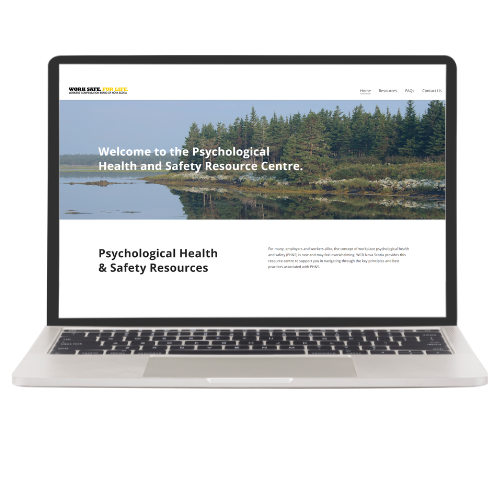A healthy and safe workplace keeps workers safe from both physical and psychological workplace injuries. A work-related psychological injury can occur from sudden, traumatic events in the workplace, or it can occur gradually, over an extended period of time.
Visit the Psychological Health and Safety Resource Centre for information on creating a psychologically healthy and safe workplace.
